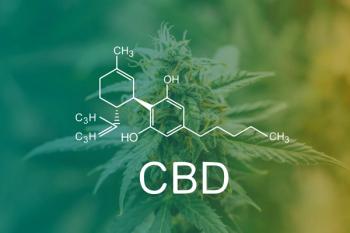
Cannabis Science and Technology
- Psychedelics: New Frontiers in Alternative Medicine
- Volume 5
- Issue s1
The Path to Legalized, Accessible Psilocybin Therapy
What would legalization and widespread availability of psilocybin therapy look like? Here, we connect with Dr. Sunil Aggarwal, a palliative care physician and cofounder of the Advanced Integrative Medical Science Institute (AIMS) in Seattle, Washington, to find out.
Small-scale published studies have shown dramatic results for psilocybin as a treatment for the depression and demoralization experienced by people confronting a terminal or life-threatening illness, among other mental health applications. Numerous parties are asking how this psychedelic substance could become recognized, permitted, and widely accessible for treatment uses beyond its current, limited research context. But the legal barriers, primarily at the US Federal Drug Enforcement Administration (DEA), continue to impede these wider applications.
Research teams at New York University (NYU) Langone Health (New York, New York), Johns Hopkins Medical Center (Baltimore, Maryland), and elsewhere continue to advance our scientific understanding of psilocybin, a psychedelic drug derived from so-called “magic” mushrooms, for the treatment of spiritual and existential suffering and trauma. Meanwhile, pharmaceutical companies wait in the wings, in anticipation of its legalization within the next few years.
But what would legalization and widespread availability of psilocybin therapy look like? Sunil Aggarwal, MD, a palliative care physician and cofounder of the Advanced Integrative Medical Science Institute (AIMS) in Seattle, Washington, wants to find out. AIMS provides what it calls “entheogen”-assisted psychotherapy with psychoactive substances that have historically been used for culturally sanctioned mystical or visionary experiences.
Dr. Aggarwal already offers ketamine-assisted therapy, using that legally available psychedelic and Federal Drug Administration (FDA)-approved anesthetic, which has shown powerful results against depression, suicidal ideation, and psycho-spiritual distress. Its effects are said to resemble a near death experience. “I’ve been using ketamine-assisted therapy in my practice for almost five years to help people with severe, crushing, existential anxiety,” said Dr. Aggarwal.
Dr. Aggarwal and two of his ketamine therapy patients are party to a lawsuit against the DEA seeking legal authorization to provide psilocybin under state and federal right-to-try laws designed to allow humane access to drugs that are still under clinical investigation.
An Emerging Palliative Care Leader
In 2020, Dr. Aggarwal was named an Emerging Leader in Hospice and Palliative Care by the American Academy of Hospice and Palliative Medicine (AAHPM). AAHPM is the professional society that represents doctors who are medical board-certified in the specialty of hospice and palliative medicine, along with other health professionals who work in palliative care—a field that focuses on relieving pain and suffering and helping patients with serious illness to articulate and achieve their treatment preferences and goals for medical care.
He was an inaugural member of AAHPM’s 360-member Safe Use of Psychedelic-Assisted Therapies Forum, and he recently presented an online master practitioner class titled, “How Psychedelics Can Be Used for Relief of Spiritual and Existential Suffering,” for 348 registered professionals at the Center to Advance Palliative Care in New York, New York.
“I’ve also had my own personal experiences with these substances as a college student, discovering that they could offer valuable insights into human consciousness. That helped impel me on my path toward becoming a doctor,” said Dr. Aggarwal. He also has a BA in philosophy and chemistry, with a religious studies minor from the University of California, Berkeley, and a PhD in medical geography from the University of Washington.
He sees growing interest in psychedelics by both health care professionals and consumers. “We need to listen to our patients. They don’t only want a clinical experience, but a ceremonial one, with entheogenic medications such as psilocybin.”
What Is Going on Here?
For many experienced medical professionals, psychedelic therapy to help terminally ill patients cope with the negative feelings that accompany their prognosis must seem like quite a stretch—despite the tantalizing outcomes to date from non-randomized studies of psilocybin therapy. Patients who receive just one or two therapist-accompanied treatments with post-treatment follow-up sessions to integrate what they experienced from the drug, report immediate and sustained relief of their debilitating anxiety and depression and improved psychological, spiritual, and existential well-being.
“We believe these substances can be neuroplastic, which refers to the ability of the brain and neurological system to develop more new linkages and connections between different neurons,” Dr. Aggarwal explained. “When you have new connections and can build new neuropathways, you can think about things in new ways—which is important if you have gotten stuck mentally.”
Some might also say the healing results from a mystical or spiritual encounter, but Dr. Aggarwal does not have a clear answer. “It’s nothing I can even explain. It’s a conscious transformation in the person’s life. It’s an existential insight that changes their life—helping them let go of a lot of things,” he said.
How would this healing work in therapeutic practice? “Assuming that we had licensure to purchase and dispense psilocybin, patients would sign an informed consent, and then undergo a medical and psychological screening,” he said. That’s to make sure there are no underlying cardiac conditions, drug-drug interaction concerns, or other psychological or medical impediments to the treatment.
Once it is clear that the patient is a good candidate, the interdisciplinary palliative care team starts the prep work: clarifying therapeutic intentions and what the patient is hoping for. The person who will be sitting with the patient on their psychedelic journey can start to build a relationship with them.
Psilocybin administration then happens in a comfortable, peaceful, well-appointed room, with offers of music, anti-nausea medications, and non-directive support. “That’s similar to how we now give ketamine, although the psilocybin session would last five to six hours, rather than just two to three hours for ketamine,” Dr. Aggarwal explained.
How to Get There from Here
Dr. Aggarwal said he is looking for any potential solutions that would permit offering this option to his patients, including the right-to-try suit. “We found producers willing to provide the psilocybin to us. The state pharmacy commissioner also signed off—so long as the DEA says it’s okay,” he stated. Others who have submitted amicus briefs in support of Dr. Aggarwal’s suit include attorney generals from Washington and several other states, the American Civil Liberties Union (ACLU), and two former presidents of AAHPM.
“Palliative care providers are eager to add these tools to their armamentariums for relieving suffering,” said Dr. Aggarwal’s lawyer, Kathryn Tucker, a patient rights advocate, and Special Counsel with Emerge Law Group. “Nobody wants to imagine a terminally-ill patient left in unrelieved suffering when we know there’s a tool that could bring relief to countless patients.”
Psilocybin is an investigational drug that has completed Phase I trials testing its safety and remains under investigation. “This drug qualifies under federal and state right-to-try laws, which were intended to allow seriously ill patients to access certain investigational drugs for therapeutic use,” said Tucker. “But the DEA has refused to open that avenue to access. We are in a major effort to open that door, and we are committed to pursuing it until successful.”
When the DEA declined Dr. Aggarwal’s request to permit access to psilocybin for treatment, Tucker brought suit with two of his cancer patients to the Federal Ninth Circuit Court of Appeals in San Francisco, California, which heard arguments in September 2021. At the end of January 2022, the court turned down the suit on the grounds that the DEA’s ruling did not constitute a final judgment. Tucker’s team brought the case back to the DEA for final determination regarding right-to-try access and filed a petition to reclassify psilocybin from Schedule I to Schedule II.
“In the event of continued delays, we’ll bring a mandamus action to try to get the court to intervene, because our clients do not have the time to withstand continued delay,” she added. In 2020, Oregon enacted the nation’s first state law to legalize access to psilocybin and a number of municipalities have also decriminalized the drug. But these efforts must still contend with federal law enforcement. The legal team has also reached out to members of Congress for their help.
The Spiritual Path
For Dr. Aggarwal, it is important that the administration of psilocybin happens in a wider context of preparation, accompaniment, and post-treatment integration of the experience with a trained therapist. He hopes all of these services could be covered by health insurance.
But he is also inspired by the religious groups that have sprung up with a special mission to offer psychedelic experience as religious ritual, and in all the cross-cultural mixing of different traditions surrounding psilocybin and other entheogens. Freedom-of-religion guarantees make it possible for such groups to legally offer psychedelics as a sacrament. An example is the Sacred Garden Community in Oakland, California (1).
“It might make sense to refer clients like mine who want to pursue psilocybin through such churches, just as palliative care refers patients to chaplains and other religious leaders in the community,” said Dr. Aggarwal. Patients could contact the church and start to do their own preparation, but palliative care could still be part of their preparation or integration. “That could be easier until we get larger solutions.”
Bob Stanley, co-founder, Senior Garden Steward and pastor for Sacred Garden, says his church wants to avoid being misunderstood about psychedelic substances, which it recognizes as sacraments and believes are covered under protections for religious freedom. But they take that responsibility very seriously. They want to learn from the secular world and from its clinical and psychological insights, such as how to be safe with entheogens. “But this is a church. We engage these sacraments from a commitment to care, respect and integrity in relationship, offering faith-based community for preparation, ceremony, and integration of what can be deeply divine experiences. This is a sacred practice for us,” said Stanley.
“Our goal is not to become some kind of legal workaround for medical providers to allow for the therapeutic provision of psychedelics to their patients. We offer pastoral counseling,” Stanley explained. “Every member of our church is open to the possibility of direct experience of the divine, whether that is called God, satori, or by other names. We believe the sacraments of our church can make the divine accessible in this lifetime.”
In particular, his group sees the end of life as a sacred time, with a distinct liturgy for the dying. “With the experience of the divine we believe we can have in this life, it’s not just a pill you take and go there. It’s about intention and asking,” he says. “It’s not a clinical experience.”
In the meantime, Dr. Aggarwal, his lawyers, and others will continue to push for legalized therapeutic access to psychedelics like psilocybin, among other entheogens that have attracted interest worldwide. The impressive, though preliminary and small-scale, results to date on the benefits of psilocybin, in particular, would seem to demand nothing less.
Reference
About the Author
Larry Beresford is a freelance writer based in California. Direct correspondence to:
Articles in this issue
over 3 years ago
May/June 2022 Digital Editionover 3 years ago
Anticipating Legalization: Making Psilocybin Accessibleover 3 years ago
Psilocybin Therapy for PTSD and DepressionNewsletter
Unlock the latest breakthroughs in cannabis science—subscribe now to get expert insights, research, and industry updates delivered to your inbox.



